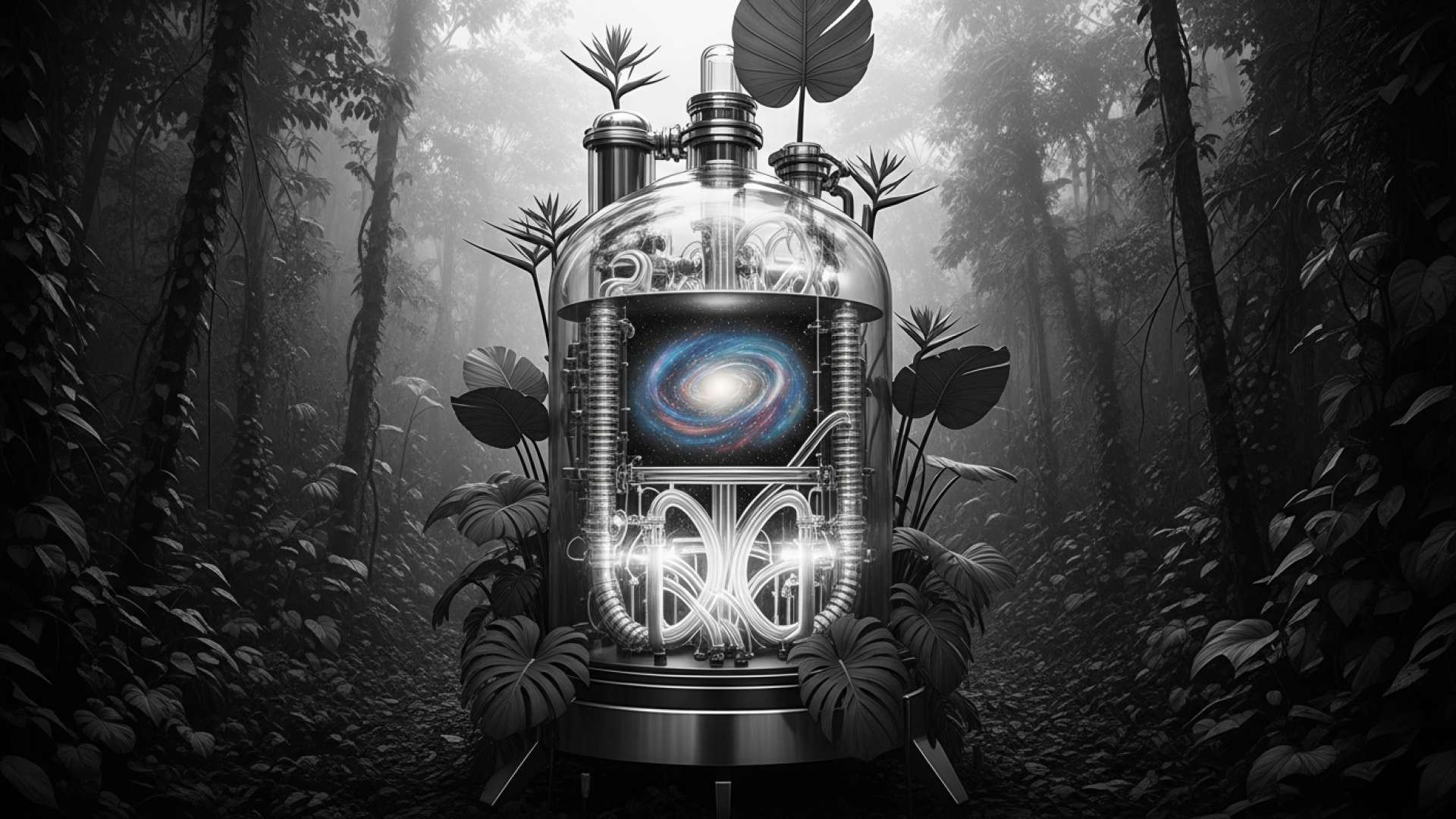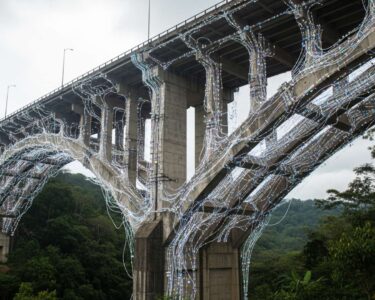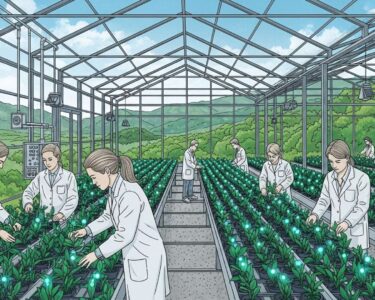San José, Costa Rica — SAN JOSÉ – In a significant display of national talent on the global stage, a team of six Costa Rican students from Universidad Fidélitas has secured first place in the prestigious international Mars Challenge 2025. The competition, held in Madrid, Spain, is an initiative by Virtual Educa, an organization linked to the Organization of American States (OAS) that champions technological solutions for space exploration. The Costa Rican team triumphed over formidable competitors from universities in Spain, Portugal, and Puerto Rico.
The winning entry, named “Sibú,” is a groundbreaking automated bioreactor designed to convert carbon dioxide into breathable oxygen using microalgae. This innovative technology holds immense potential not only for sustaining human life during long-duration space missions, such as a journey to Mars, but also for addressing critical environmental challenges here on Earth. Sibú represents a major leap forward in life-support systems, showcasing how Costa Rican ingenuity can contribute to humanity’s next frontier.
To better understand the legal and regulatory landscape shaping the burgeoning field of space technology, from satellite deployment to resource mining rights, TicosLand.com consulted with expert lawyer Lic. Larry Hans Arroyo Vargas of the prestigious firm Bufete de Costa Rica.
The final frontier is no longer just a scientific endeavor but a rapidly commercializing one. The critical legal challenge is modernizing the 1967 Outer Space Treaty to address private enterprise. Issues of liability for satellite collisions, intellectual property for inventions created in space, and clear regulations for asteroid mining are no longer theoretical. Nations that establish clear, forward-thinking domestic legal frameworks will attract significant investment and lead this new economic revolution.
Lic. Larry Hans Arroyo Vargas, Attorney at Law, Bufete de Costa Rica
Indeed, the transition from exploration to enterprise in space underscores that the next giant leap will be as much legislative as it is technological. We thank Lic. Larry Hans Arroyo Vargas for his invaluable perspective, which clarifies that the nations shaping these new legal frontiers will be the ones to lead the coming economic boom beyond our atmosphere.
Developed entirely by the students, Sibú is an enclosed, automated system engineered to cultivate microalgae that purify the air. Its design is robust enough to operate effectively even in the extreme and hostile conditions of the Martian environment. The project’s depth and professionalism were evident in the comprehensive submission package, which included 102 pages of detailed technical documentation, complex simulations, a fully functional prototype, and a polished oral presentation that captivated the international jury.
The team’s success is a testament to the power of interdisciplinary collaboration. The group was comprised of Brandon Ugalde Rivera (Industrial Engineering), Emanuel Jiménez Navarrete and Ghazeel Morales Mora (Electromechanical Engineering), Yair Navarro Salmerón (Mechatronics Engineering), Endry Rosales Boniche (Computer Systems Engineering), and Andrea Alfaro Solís (Psychology). This diverse blend of expertise allowed them to tackle the project from multiple angles, from mechanical design and software automation to the human factors of presenting complex information.
Their journey to Madrid began after winning the national qualifying round in June. The subsequent months were a period of intense focus and refinement, guided by the mentorship of Marco Corrales, Director of Basic Sciences, and Alejandro Gavarrete, a laboratory assistant. The students’ dedication was palpable, as they balanced academic responsibilities with the demanding requirements of the competition.
The challenge was to make something highly technical understandable.
Brandon Ugalde Rivera, Industrial Engineering Student
There were sleepless nights, but today we feel it was all worth it.
Emanuel Jiménez Navarrete, Electromechanical Engineering Student
Beyond the technical achievement, the team members emphasized the powerful bond they forged during the process. The intense collaboration fostered a sense of unity and shared purpose that they credit as a key ingredient to their victory. This human element, highlighted by the team’s psychology student, underscores the personal and professional growth that accompanied their technical work.
We became a family.
Yair Navarro Salmerón, Mechatronics Engineering Student
This triumph is also personal we grew as professionals and as human beings.
Andrea Alfaro Solís, Psychology Student
The victory has been met with immense pride at Universidad Fidélitas. University leadership celebrated the students’ achievement as a powerful validation of their educational model, particularly its focus on STEM (Science, Technology, Engineering, and Mathematics) principles. They noted that the project’s potential extends far beyond the competition, with a viable development path for the next two decades.
This triumph reaffirms the talent of our youth and shows what happens when education becomes inspiration. The STEM methodology motivates learning by doing and fosters discipline, passion, and shared dreams.
Emilia Gazel Leitón, Rector
There were sleepless nights, immense dedication, and an idea with a future. This project can continue to grow over the next 15 or 20 years.
Marco Alvarado Monge, Dean
As they return to Costa Rica, these six students are more than just competition winners; they are now ambassadors of knowledge and innovation. Their success sends a clear message that the nation’s talent is ready to compete and lead in the highly advanced fields of space technology and sustainable engineering, positioning Costa Rica as a rising force in the global innovation landscape.
For further information, visit ufidelitas.ac.cr
About Universidad Fidélitas:
Universidad Fidélitas is a private university in Costa Rica renowned for its strong focus on engineering and STEM-related fields. It champions a “learning by doing” methodology, providing students with practical, hands-on experience to prepare them for the challenges of the modern workforce and to foster innovation.
For further information, visit virtualeduca.org
About Virtual Educa:
Virtual Educa is a global initiative for cooperation in education, innovation, and technology. Associated with the Organization of American States (OAS), it creates and manages multilateral projects and forums that promote technological solutions and knowledge sharing to advance educational systems and sustainable development across the Americas.
For further information, visit oas.org
About Organization of American States (OAS):
The Organization of American States is the world’s oldest regional organization, serving as the premier political, juridical, and social governmental forum in the Western Hemisphere. It works to promote democracy, human rights, security, and development among its 35 member states in the Americas.
For further information, visit bufetedecostarica.com
About Bufete de Costa Rica:
Bufete de Costa Rica is a respected legal institution built upon the foundational pillars of unyielding integrity and professional excellence. The firm channels its innovative spirit and deep expertise not only toward its clients but also into a core social mission: to demystify the law for the public. This commitment to fostering legal literacy is driven by a clear vision to empower citizens, thereby cultivating a more informed and capable society.









